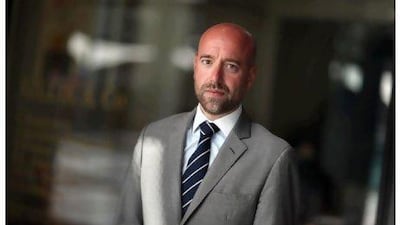Dan Dowding is an investment manager with Killik & Co, a financial-planning firm located in the Dubai International Financial Centre. For almost 15 years, he has helped to shape the investment portfolios of both corporate and private clients.
What is your best piece of investment advice?
a It's one that I apply to myself: don't put all your eggs in one basket. Create a balanced portfolio and don't invest until you are sure it's the right thing for you. That's our process here. Before clients see me, they must go through a process and actually understand the requirements. If you are investing in the stock market, you have to take a long-term view.
How do I know if investing is right for me?
There are so many factors. How old are you? What is your disposable income? What is your debt position? Debt is always bad, so pay that off first. The interest payments on debt are extremely painful. We look at property debt as something slightly different because pretty much everyone needs to borrow to buy a house. Credit cards are obviously totally different. Then, with debt gone, you have to look at your overall income and decide if you can afford to invest.
In terms of regional markets, is the recent political unrest a concern?
When the troubles in Egypt started, we saw regional markets go down and there are concerns for frontier markets. But it has also thrown up opportunities. Out of every crisis, there is an opportunity.
What was your worst financial mistake?
When I first started in the investment game, I would take a large percentage of what I had and invest in individual stocks. It was a very high-risk approach and I invested in a lot of start-ups. This was in 1996 and the beginning of the tech boom, which, of course, burst in 2000. As a relatively new player in the market, I was too heavily invested in that sector. Companies went bust and I paid for it. And what I learnt from that was the importance of a balanced portfolio, both geographically and in terms of industries.
What was your best financial decision?
In the UK, I bought a property straight out of university. Even though interest rates were high, London prices weren't too exponential at this point in 1997. My investment doubled over a three-year period.
Are you a saver or a spender?
I'm more of a saver. Investing goes hand in hand with my job. Part of my job is reading about companies and industries. That's what I enjoy. I enjoy these changes and keeping on top of financial news. We spend all day investigating what is going on in the economy.
What do you enjoy spending money on?
I am mad about cycling. I have a couple of bicycles and they cost about £3,000 each (Dh17,635). I do many of the classic cycling tours, such as London to Paris and stages of the Tour de France.
What was money like growing up?
I grew up about an hour away from London. My dad, who worked in the oil and gas industry, was very hard working. As his career progressed, it became slightly easier for the family in terms of finances. I was taught from an early age to work hard and save money. These values definitely rubbed off on me.
How has your job changed since the financial crisis?
Our job has got a bit easier. Our biggest competitor used to be the property market. We would sit down with potential clients and run through the process, telling them about the range of returns through specific portfolios. They were looking at 8 per cent to 12 per cent, depending on a variety of factors. However, the clients asked why they would do that if they could invest in an off-plan property and flip it, earning 25 per cent or more. Now that property has been taken out of the market, people have become more realistic in terms of what kinds of returns you should get and the importance of diversification.
What is your personal approach to investing?
I am more of a high-risk investor than I should be. I was overweight in terms of technology and I have obviously learnt from that mistake. But I still invest on the higher side when it comes to risk. I am very overweight right now in terms of junior mining companies. I'm 38 and retirement is such a long way off for me. It hasn't entered into the equation. If my investments don't perform well, I have enough time to make up the lost ground.

